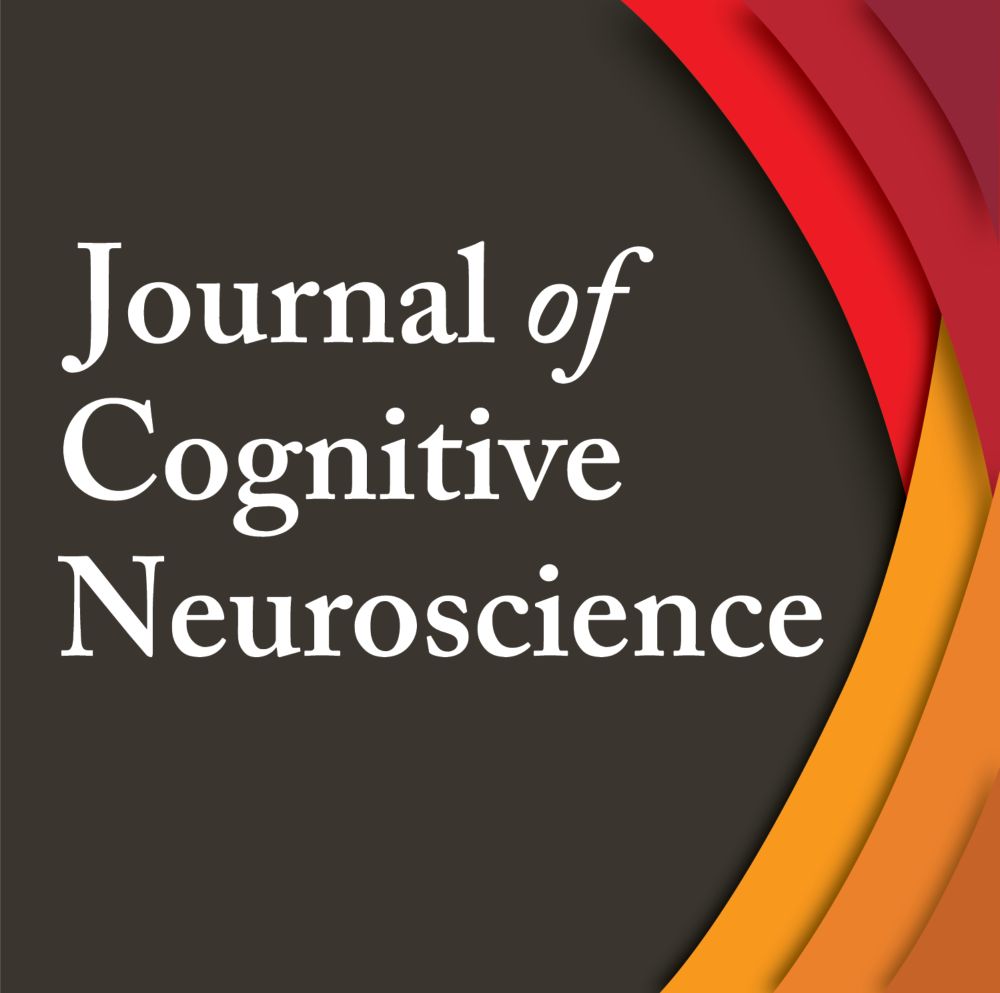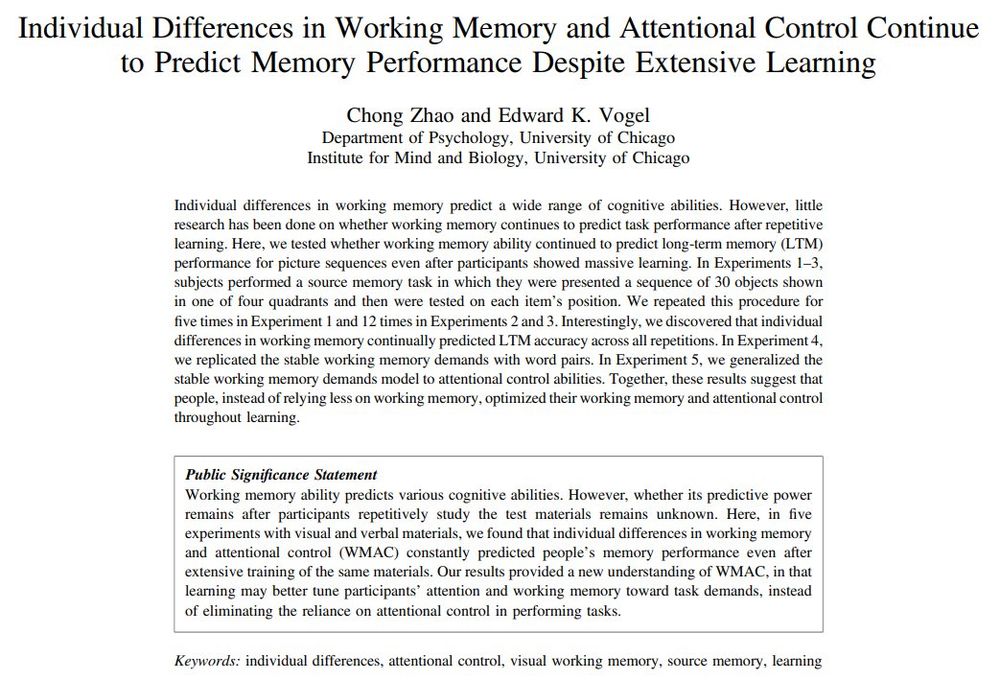Chong Zhao
@zhaochong.bsky.social
130 followers
200 following
13 posts
PhD student at UChicago Psych. Interested in visual memory and its individual differences.
Posts
Media
Videos
Starter Packs
Chong Zhao
@zhaochong.bsky.social
· Jun 18

Working memory and attentional control abilities predict individual differences in visual long-term memory tasks
Working memory predicts cognitive abilities like fluid intelligence (gF) and source memory. This suggests these abilities depend on working memory and…
sciencedirect.com
Chong Zhao
@zhaochong.bsky.social
· Jun 18
Reposted by Chong Zhao
Jadyn Park
@jadynpark.bsky.social
· Mar 14
Chong Zhao
@zhaochong.bsky.social
· Mar 14
Chong Zhao
@zhaochong.bsky.social
· Jan 29
Reposted by Chong Zhao
Kirsten Adam
@kirsten-adam.bsky.social
· Nov 19









